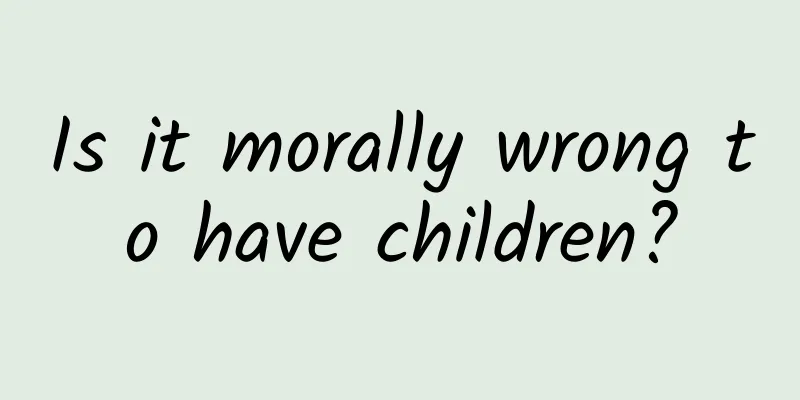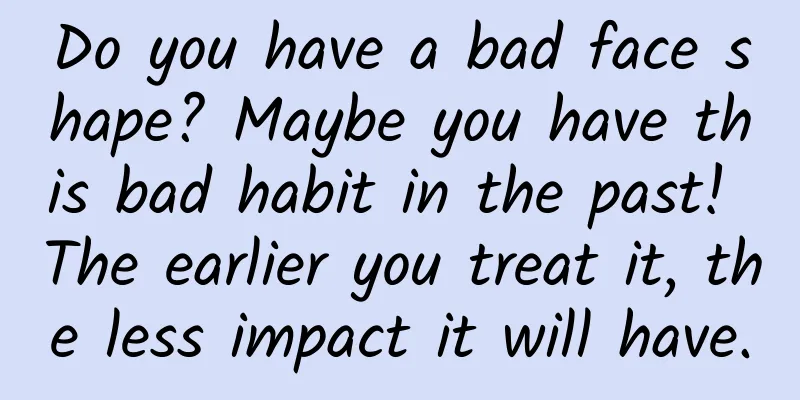Is it morally wrong to have children?

|
Leviathan Press: To apply the more popular view now, death is not a moment, but a process - in the biological sense, there is no such thing as "death" that only exists at a certain moment. Every deceased person has experienced a series of gradual deaths: tissue failure at different rates. Therefore, the saying "from birth to death" is also logically valid. We may often hear parents say, "Is it wrong for us to give birth to you?" There is a line in Cui Jian's song "Speculators" that goes, "Just like when the girl gave birth to us/We didn't say yes either." Indeed, a "non-existence" cannot have its own will to decide to be born, so "Is it wrong (morally) for your parents to give birth to you?" has become a philosophical question worth pondering. As a person who refuses to reproduce, I don't want to impose my personal views on anyone, and it doesn't need to become a declaration. In other words, this choice is ultimately personal and can only be inspired, not advocated. Just like Benatar's asymmetric argument in the article, the beliefs held by those who support and oppose fertility are necessarily different, and their understanding of the probability of pain and harm is also biased. Therefore, this is not necessarily a question of who convinces whom. Imagine that humans have invented such a drug that can end a person's life without pain. Once the drug is administered to a person, the person will die at any time after one year. But this drug will only take effect when the person is asleep and will not cause any pain. Now, imagine that you wake up one day in prison and have no recollection of who you are. The guards tell you that you were hit on the head by an inmate, and you can't remember anything (except your name). Then, you were informed of the existence of this drug, and were given it for committing an evil act. Now you have less than a year to live. But you don’t know that you are actually framed and can only wait for death silently. In fact, this is life. In the real world, we are all implanted with this drug at birth. Perhaps the biggest difference is that it is ready to go at any time. Anti-Natalism Anti-natalism is the view that childbearing is morally wrong. It’s a very radical and counterintuitive view. But since it’s relevant to all sorts of policymaking (especially in countries with overpopulated or aging populations), its philosophical implications are worth examining in detail. (plato.stanford.edu/entries/parenthood/#GroLimRigPro) South African philosopher David Benatar (1966-). © The Irish Catholic The main proponent of this view is the South African philosopher David Benatar, whose main method of argument is the asymmetry argument. In short, he argues that existence is always painful (though not all of it is painful), and non-existence means the absence of pain. (www.princeton.edu/~eharman/Benatar.pdf) In short, his proposition can be divided into four points:
His argument is colored by a pain-avoiding empathy. He argues that because pain is inevitable, existence is bad. Thus, Benatar’s anti-natalism requires us to have empathy for the pain in our lives, and to abstain from childbearing in order not to bring pain into the world. My anti-birth philosophy is not based on a dislike for children, but on a desire to avoid the pain they will experience as they grow up and become adults, even though not having children goes against the interests of those who want to have children. —David Benatar, Better to Not Have Been © Reasonable Faith Thesis on Harm Benatar's anti-natalism is a thesis about harm. That is, he believes that procreation is morally wrong because it necessarily causes harm to a potential, sentient being. The asymmetry argument is also about harm. Having children is to introduce a person into unavoidable harm in life (even though his or her life may be good overall). But not having children prevents that potential harm. In everyday life, if we know that someone is going to be harmed, we have a moral obligation to protect him or her from harm, and we have the ability to do so. Benatar believes that the same is true for childbirth. Even so, critics of Benatar (and anti-natalism in general) often raise the non-identity problem. In short, they argue that it is impossible to inflict harm on an individual who does not yet exist. (plato.stanford.edu/entries/nonidentity-problem/) Derek Parfit (1942-2017) made the classic case for the no-identity problem. The thought experiment goes like this: A 14-year-old girl has just fully grown. If she chooses to have a baby, (for biological and social reasons) it will undoubtedly be bad for the child that might be born, and therefore it is morally wrong to do so. So, she will choose to wait a few years before getting pregnant. However, Parfit believes that in "a few years", she will undoubtedly be pregnant with another child (the embryo will develop from another egg). This means that the situation faced by the child conceived now is not necessarily bad compared to the child conceived many years later, because we still need to compare the welfare of the two individuals. Ways to get around the no-identity problem The premise of the no-identity problem is an important assumption, namely, that we cannot harm people who do not yet exist. But we can get around this problem by, for example, approaching anti-natalism from the perspective of fairness rather than harm. Although the concepts of fairness and harm are closely related, they are distinct from each other. For example, we can harm someone fairly through punishment and reward, and we can also inflict harm unfairly in a wrongful conviction. It is important to understand that something can be unfair without causing harm to anyone. An example is favoritism, where one group of people benefits while another group does not. Here is the fairness argument: 1. It is morally wrong to take an unfair action (regardless of whether it causes harm). 2. If it is unfair to take an innocent life, then it is also unfair to give birth. 3. Therefore, if it is morally wrong to take an innocent life, then it is also morally wrong to give birth. © BBC Forced to be born, sentenced to death Perhaps the second argument requires more defense. I equate childbearing with sentencing a person to death. This is extremely counterintuitive to people who haven't thought deeply about this, because in common thinking, life is the opposite of death. So, to think of birth as a step toward death sounds absurd. First of all, I must make it clear that I am not equating "life" with "death." These two concepts are clearly distinct. As long as we do not look at it from the extreme perspective of Hegel's dialectic (which we certainly do not have to do), life and death are not the same thing. To be clear, I am equating "being born" with "being sentenced to death." Both mean "becoming," but birth and death mean "being." To put it more simply, one is "I am going to die" and the other is "I am dead." Second, I think it is undisputed that everyone who lives will eventually die. Death is a natural and inevitable part of life. In the biological world, every complex organism will die one day, and so will humans. (articlekz.com/en/article/15713) Third, there is no doubt that when we are brought into this world and given life, we are brought into a state of death. Therefore, experiencing life is experiencing the process of dying. Note that the process of dying is, in most cases, painless or harmless. We should not confuse "dying" with the agony and gore of dying. The former is simply the process leading to the state of dying. So, if everyone is mortal, then we are all in the state of dying. Maybe a bad analogy? One could object that sentencing an innocent person to death is not unfair. It is unfair to reduce the time an innocent person should have lived on earth. This is still related to the problem of identitylessness. It is only unfair to sentence someone to death if they are already alive and have more time to live. In this way, the analogy between sentencing an innocent person to death and giving birth breaks down. The former deprives the person of the right to continue living, while the latter makes death inevitable. The two are different. This forces us to consider the fairness and morality of the death penalty - a topic that deserves further discussion. What then? If you think this argument is plausible, then we agree that procreation (and bringing life into existence) is morally wrong. It follows that we should limit or even prohibit the creation of life. We have a moral obligation to limit procreation. I don't want to go too far and say that we have a moral obligation to stop procreation all together. Just as we must occasionally put innocent people to death in order to "restore humanity," we should work to improve the living standards of the existing population (e.g., adoption and charity) before we turn our attention to the future. By Wei Xiang Translated by Yord Proofreader/Pharmacist Original article/theapeiron.co.uk/is-procreation-morally-wrong-1c8e5a625548 This article is based on the Creative Commons Agreement (BY-NC) and is published by Yord on Leviathan The article only reflects the author's views and does not necessarily represent the position of Leviathan Editor's note: Derek Parfit mentioned in the article is one of the most important moral philosophers in the late 20th and early 21st centuries. For example, his discussion of personal identity is very interesting. His books "Reason and Person" and "On Important Things" have been published in China. If you are interested, you can take a look. |
Recommend
Will staying up late affect menstruation?
In our daily life, many women have irregular mens...
What is the reason for the white discharge to be bloody?
For many women, the most feared thing is some gyn...
Night Listening|Working out after staying up late? Is it cyber health preservation or cyber illness recovery?
This kind of hardcore lifestyle is likely to lead...
How is bacterial vaginitis caused?
Most women are familiar with vaginitis. There are...
What is the use of heparin calcium for pregnant women
What is the use of heparin calcium for pregnant w...
Can still produce milk after three years of weaning
You cannot express milk three years after weaning...
40 days of pregnancy bleeding like menstruation
The forty days of pregnancy is the early stage of...
What should I do if my breasts sag and expand outward?
Many women are troubled by sagging and outward-ex...
Can you eat a white radish that is black in the middle and white around it? Why is the white radish black in the middle?
We all know that white radish is a common food. I...
In 2019, Chinese people spent 10 trillion yuan on online shopping. Why are the police everywhere worried?
Online shopping has long become a part of Chinese...
Woman with freckles on face
When it comes to spots, most of us probably think...
What to eat to make your skin smoother
The water content of human tissue fluid is 72%, a...
What causes blisters on the vulva?
Nowadays, sexual life is more open, so many women...
What are the benefits of maintaining the uterus?
Everyone has their own attitude towards life. Man...
Causes of Breast Pigmentation
Many people think that women's nipples should...









